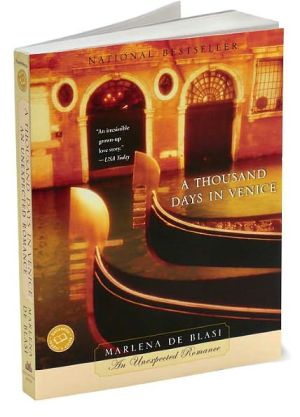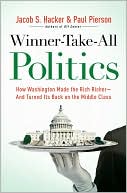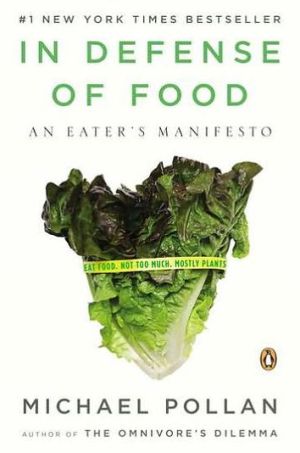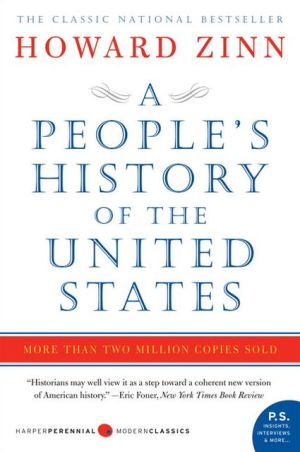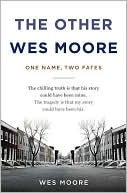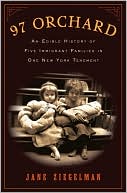A Thousand Days in Venice
\ He saw her across the Piazza San Marco and fell in love from afar. When he sees her again in a Venice café a year later, he knows it is fate. He knows little English; and she, a divorced American chef, speaks only food-based Italian. Marlena thinks she is incapable of intimacy, that her heart has lost its capacity for romantic love. But within months of their first meeting, she has packed up her house in St. Louis to marry Fernando—“the stranger,” as she calls him—and live in that achingly...
Search in google:
When Fernando spots her in a Venice café and knows immediately that she is the One, Marlena de Blasi is caught off guard. A divorced American woman traveling through Italy, she thought she was satisfied with her life. Yet within a few months, she quits her job as a chef, sells her house, kisses her two grown kids good-bye, and moves to Venice. Once there, she finds herself sitting in sugar-scented pasticcerie, strolling through sixteenth-century palazzi, renovating an apartment overlooking the seductive Adriatic Sea, and preparing to wed a virtual stranger in an ancient stone church.As this transplanted American learns the hard way about the peculiarities of Venetian culture, we are treated to an honest, often comic view of how two middle-aged people, both set in their ways but also set on being together, build a life. A Thousand Days in Venice is filled with the foods and flavors of Italy and peppered with recipes and culinary observations. But the main course here is about a woman who falls in love with both a man and a city, and finally finds the home she didn't know she was missing. It's a deliciously satisfying meal. Caspar Weinberger - Forbes Eleven years ago I began sharing with the readers of this space my insights on some of the books I read during summer "vacation." Summers have expanded because of my somewhat lighter load of FORBES traveling, speaking and columns. In short, "summer" reading now goes on most of the year, particularly during long flights to Asia, of which there are still several each year.First I call your attention to 2001's Churchill, a Biography--by Roy Jenkins (paperback: Plume, $18). Of all the works on Winston Churchill (and the list of books about him is approaching the length of the list of Abraham Lincoln biographies), I would nominate Jenkins' biography as one of the best--although William Manchester's unfinished study is great, too. Jenkins, who performed similar services for prime ministers William Ewart Gladstone, Herbert Henry Asquith and Stanley Baldwin, as well as for others of historic significance, was superbly gifted with experi-ence (50 years at or near the top of British and European politics) and had the opportunity to observe Churchill during the 16 years they served together in the House of Commons. Jenkins' recent death has deprived us of the further biographies we were all anticipating.Churchill is, on the whole, admiring, but it is certainly no hagiography. The last sentences disclose the fairness and the fullness of this great biography: "When I started writing this book I thought that Gladstone was, by a narrow margin, the greater man, certainly the more remarkable specimen of humanity. In the course of writing it I have changed my mind. I now put Churchill, with all his idiosyncrasies, his indulgences, his occasional childishness, but also his genius, histenacity and his persistent ability, right or wrong, successful or unsuccessful, to be larger than life, as the greatest human being ever to occupy 10 Downing Street."Next I want to call attention to two books that have two things in common: both are by Buckleys--father and son, respectively--and are therefore distinguished by first-rate writing, great narrative skill and a splendid appreciation of the historic and the comic.Getting It Right--by William F. Buckley Jr. (Regnery, $24.95)--continues Bill Buckley's series of turn-ing the history (perhaps too narrow a canvas here) of 20th-century American politics into exciting novels. And, of course, the author himself is a participant in many of the incidents. In Getting It Right we see what Robert Welch, founder of the John Birch Society, and the impressive, puzzling and enormously influential (for a short time) Ayn Rand were really like. Rand's novels about the beginning of the conservative movement rivaled the Harry Potter novels in sales. Now it's hard to know quite why, as Rand's writing was unexceptional. Probably her loss of fame is be-cause conservative thought and philosophies--so unusual at the time--have become so much a part of the conventional wisdom that her writings have lost their shock value. Welch and Rand had offshoots that had to be exorcised and dealt with before conservatism could be accepted. Buckley was the major force behind making conservatism appealing, un-derstandable and respectable.Washington Schlepped Here--by Christopher Buckley (Crown Journeys, $16)--is an incredibly good guidebook to our nation's capital. Even the most ancient of Washington's cave dwellers who are reputed to know every-thing will have a lot to learn about their city from young Buckley. Christopher, a comparative newcomer, has mined the sources assid-uously, without ever losing his extra-ordinary comic talents. There are few--if any--better descriptions of the Freer Gallery of Art's Peacock Room. And I'd be surprised if many Lincoln scholars are familiar with Lincoln's cas-ual dismissal of criticism of the Gettysburg Address: "Men are not flattered by being shown that there has been a differ-ence of purpose between the Almighty and them." When it comes time for your children or grandchildren's school class to visit Washington, the best preparation they or anyone could have would be to read this book.Then I read two too short books with similar themes: An Italian Affair--by Laura Fraser (Vintage Books, $12) and A Thousand Days in Venice--by Marlena de Blasi (Ballantine Books, $12.95). In both of these books an American woman, each an excellent book, has her dreams of romance in Italy come true--at least for a time. Ms. Fraser's book is far superior, probably because of a general lightheartedness and her obvious joy in her love affair. In both books, the local color and the descriptions of the mouthwatering Italian dishes are superb. These books are among the best recruiting weapons Italy's tourism authority could wish for.And last I read a truly small, delightful book for dog lovers: Why Dogs Do That--by Tom Davis (Wil-low Creek Press, $13.95). An earlier Davis work, Just Goldens, chronicles the lives and skills of golden retriev-ers. Why Dogs Do That answers several puzzling questions, such as why dogs bury bones; why dogs insist on sleeping in bed with their masters; and why some dogs howl. (Sadly there's no reasonable explanation for the blood-curdling noises emitted occasionally--usually around midnight--by my golden retriever.) This book is a splendid addi-tion to dog lore. It should enable you to understand at least some of your dog's puzzling, but always lovable, behavior.
CHAPTER 1\ Signora, the Telephone Is for You\ \ The small room is filled with German tourists, a few English, and a table or two of locals. It’s November 6, 1993, and I arrived in Venice that morning, two friends in tow. We speak quietly together, sipping Amarone. Time passes and the room empties, but I notice that one table, the one farthest away from us, remains occupied. I feel the gentle, noninvasive stare of one of the four men who sit there. I turn my shoulders in, toward my wine, never really looking at the man. Soon the gentlemen go off, and we three are alone in the place. A few minutes pass before a waiter comes by to say there is a telephone call for me. We have yet to announce our arrival to friends, and even if someone knew we were in Venice, they couldn’t possibly know we were lunching at Vino Vino. I tell the waiter he’s mistaken. “No, signora. Il telefono è per Lei,” he insists. “Pronto,” I say into the old, orange wall telephone that smells of smoke and men’s cologne.\ \ “Pronto. Is it possible for you to meet me tomorrow at the same time? It’s very important for me,” says a deep, deliberate, Italian voice I’d never heard before. In the short silence that follows it somehow clicks that he is one of the men who’d left the restaurant just moments before. Though I’ve understood fairly well what he has said, I can’t respond in Italian. I mumble some linguistic fusion like, “No, grazie. I don’t even know who you are,” thinking that I really like his voice.\ \ The next day we decide to return to Vino Vino because of its convenience to our hotel. Idon’t think about the man with the beautiful voice. But he’s there, and this time he’s without his colleagues and looking more than a little like Peter Sellers. We smile. I go off to sit with my friends, and he, seeming not quite to know how to approach us, turns and goes out the door. A few beats pass before the same waiter, now feeling a part of something quite grand, comes to me, eyes direct: “Signora, il telefono è per Lei.” There ensues a repeat of yesterday’s scene. I go to the phone, and the beautiful voice speaks in very studied English, perhaps thinking it was his language I hadn’t understood the day before: “Is it possible for you to meet me tomorrow, alone?”\ \ “I don’t think so,” I fumble, “I think I’m going to Naples.”\ “Oh,” is all the beautiful voice can say.\ “I’m sorry,” I say and hang up the phone.\ \ We don’t go to Naples the next day or the day after, but we do go to the same place for lunch, and Peter Sellers is always there. We never speak a word face to face. He always telephones. And I always tell him I can’t meet him. On the fifth day—a Friday—our last full day in Venice, my friends and I spend the morning at Florian mapping the rest of our journey, drinking Prosecco and cups of bitter, thick chocolate lit with Grand Marnier. We decide not to have lunch but to save our appetites for a farewell dinner at Harry’s Bar. Walking back to the hotel, we pass by Vino Vino, and there is Peter Sellers, his nose pressed against the window. A lost child. We stop in the calle a moment, and my friend Silvia says, “Go inside and talk to him. He has the dearest face. We’ll meet you at the hotel.”\ \ I sit down next to the sweet face with the beautiful voice, and we drink some wine. We talk very little, something about the rain, I think, and why I didn’t come to lunch that day. He tells me he is the manager of a nearby branch of Banca Commerciale Italiana, that it’s late, and he has the only set of keys to reopen the safe for the after-noon’s business. I notice the sweet face with the beautiful voice has wonderful hands. His hands tremble as he gathers his things to leave. We agree to meet at six-thirty that evening, right there, in the same place. “Proprio qui, Right here,” he repeats again and again.\ \ I walk to the hotel with a peculiar feeling and spend the afternoon lolling about my little room, only half celebrating my tradition of reading Thomas Mann in bed. Even after all these years of coming to Venice, every afternoon is a ritual. Close by on the night table I place some luscious little pastry or a few cookies or, if lunch was too light, maybe one, crusty panino which Lino at the bottega across the bridge from my Pensione Accademia has split and stuffed with prosciutto, then wrapped in butcher’s paper. I tuck the down quilt under my arms and open my book. But today I read and don’t read the same page for an hour. And the second part of the ritual falls away altogether, the part where I wander out to see images Mann saw, touch stones he touched. Today all I can think about is him.\ \ The persevering rain becomes a tempest that night, but I am resolved to meet the stranger. Lagoon waters splash up and spill over onto the river in great foaming pools and the Piazza is a lake of black water. The winds seem the breath of furies. I make my way to the warm safety of the bar at the Hotel Monaco but no farther. Less than a few hundred yards from Vino Vino, I’m so close but I can get no closer. I go to the desk and ask for a telephone directory, but the wine bar is not listed. I try calling assistenza but operator number 143 finds nothing. The rendezvous is a wreckage, and I haven’t a way to contact Peter Sellers. It was just not meant to be. I head back to the hotel bar, where a waiter called Paolo stuffs my soaked boots with newspaper and places them near a radiator with the same ceremony someone else might use to stow the crown jewels. I’ve known Paolo since my first trip to Venice four years earlier. Stocking-footed, fidgeting, drinking tea, I sit on the damp layers of my skirt, which sends up the wooly perfume of wet lambs, and watch fierce, crackling lights rip the clouds. I think back to my very first time in Venice. Lord, how I fought that journey! I’d been in Rome for a few days, and I’d wanted to stay. But there I was, hunkered down in a second-class train, heading north. “ARE YOU GOING TOVENICE?” asks a small voice in tentative Italian, trespassing on my Roman half-dream.\ \ I open my eyes and look out the window to see we have pulled into Tiburtina. Two young, pink-faced German women are hoisting their great packs up into the overhead space, thrusting their ample selves down onto the seat opposite me. “Yes,” I finally answer, in English, to a space somewhere between them. “For the first time,” I say.\ \ They are serious, shy, dutifully reading the Lorenzetti guide to Venice and drinking mineral water in the hot, airless train car as it lunges and bumps over the flat Roman countryside and up into the Umbrian hills. I close my eyes again, trying to find my place in the fable of life in the Via Giulia where I’d taken roof-top rooms in the ochered-rose palazzo that sits across from the Hungarian Art Academy. I’d decided I would go each \ \ Friday to eat a bowlful of tripe at Da Felice in the Testaccio. I would shop every morning in Campo dei Fiori. I’d open a twenty-seat taverna in the Ghetto, one big table where the shop keeps and artisans would come to eat the good food I’d cook for them. I’d take a Corsican prince as my lover. His skin would smell of neroli blossoms, and he’d be poor as I would be, and we’d walk along the Tiber, going softly into our dotage. As I begin putting together the exquisite pieces of the prince’s face, the trespasser’s small voice asks, “Why are you going to Venice? Do you have friends there?”\ \ “No. No friends,” I tell her. “I guess I’m going because I’ve never been there, because I think I should,” I say, more to myself than to her. I have hopelessly lost the prince’s face for the moment, and so I parry: “And why are you going to Venice?”\ \ “For romance,” says the inquisitive one very simply.\ My plainer truth is that I am going to Venice because I’m being sent there, to gather notes for a series of articles. Twenty-five hundred words on the bacari, traditional Venetian wine bars; twenty-five hundred more on the question of the city’s gradual sinking into the lagoon; and an upscale dining review. I would rather have stayed in Rome. I want to go back to my narrow green wooden bed in the strange little room tucked up in the fourth-floor eaves of the Hotel Adriano. I want to sleep there, to be awakened by powdery sunlight sifting in through the chinks in the shutters. I like the way my heart beats in Rome, how I can walk faster and see better. I like that I feel at home wandering through her ancient ecstasy of secrets and lies. I like that she’s taught me I am only a scintilla, a barely perceptible and transient gleam.\ \ And I like that at lunch, with fried artichokes on my breath, I think of sup-per. And at supper I remember peaches that wait in a bowl of cool water near my bed. I’ve nearly retrieved the pieces of the prince’s face as the train lurches over the Ponte della Libertà. I open my eyes to see the lagoon.\ \ Back then I could never have imagined how sweetly this\ ravishing old Princess was to gather me up into her tribe, how she would dazzle and dance the way only she can, exploding a morning with gold-shot light, soaking an evening in the bluish mists of a trance. I smile at Paolo, a tribal smile, a soundless eloquence. He stays near, keeping my teapot full. It’s after eleven-thirty before the storm rests. I pull on boots all hardened into the shape of the newsprint stuffing. Damp hat over still-damp hair, still-damp coat, I gather myself for the walk back to the hotel. Something prickles, shivers forward in my consciousness. I try to remember if I’d told the stranger where we were staying. What’s happening to me? Me, the unflappable. Even as I am drawn to Venice, so am I suspicious of her.\ \ It seems I did tell him the name of our hotel, because I find a sheaf of pink paper messages under my door. He’d called every half hour from seven until midnight, the last message letting me know he would be waiting in the lobby at noon the next day, exactly the hour we were to leave for the airport.\ \ Morning brings the first sun we’ve seen in Venice during that stay.\ \ I heave open my window to a day limpid and soft, as if in apology for all that weeping the night before. I pull on black velvet leggings and a turtleneck and go down to meet Peter Sellers, to look him in the eyes and to find out why a man I’d hardly met could be so disturbing to me. I don’t know how I’m going to find out very much though, because he seems to speak no English and the only clear discourse I can carry on in Italian is about food. I’m a bit early, so I walk outside to feel the air and find I’m just in time to see him climbing over the Ponte delle Maravegie, trench coat, cigarette, newspaper, umbrella. I see him before he sees me. And I like what I see, feel. “Stai scappando? Are you escaping?” he asks.\ \ “No. I was coming to meet you,” I say, mostly with my hands.\ I had told my friends to wait, that I’d be half an hour, an hour at most. We would still have plenty of time to take a water taxi to the Marco Polo airport and check in for our three o’clock flight to Naples. I look at him. I really look at the stranger for the first time.\ \ All I see is the blue of his eyes. They are colored like the sky and the water are colored today and like the tiny, purply-blue berries called mirtilli, I think. He is at once shy and familiar, and we walk without destination. We stop for a moment on the Ponte dell’Accademia. He keeps dropping his newspaper and, as he bends to retrieve it, he thrusts the point of his umbrella into the crowds that pass behind us.\ \ Then, holding the newspaper under one arm and the umbrella under the other, its evil point still a thwart to the strollers, he slaps at his breast pockets, his trouser pockets, in search of a match. He finds the match and then begins the same search for another cigarette to replace the one that just dropped from his lips into the canal. He really is Peter Sellers.\ \ He asks if I’ve ever thought much about destiny and if I believe there is such a thing as vero amore, real love. He looks away from me out over the water and speaks in a throaty sort of stammer for what seems like a long time and more to himself than to me. I understand few of the words except his final phrase, una volta nella vita, once in\ a lifetime. He looks at me as though he wants to kiss me, and I think I’d like to kiss him, too, but I know the umbrella and the newspaper will go into the water and, besides, we’re too old to be playing love scenes. Aren’t we too old? I’d probably want to kiss him even if he didn’t have blueberry eyes. I’d probably want to kiss him even if he looked like Ted Koppel. It’s only this place, the view from this bridge, this air, this light. I wonder if I’d want to kiss him if I’d met him in Naples. We take a gelato at Paolin in Campo Santo Stefano, sitting down at a front-row table in the sun.\ \ “How do you feel about Venice?” he wants to know. “This is not your first visit here,” he says, as though flipping through some internal dossier that tracks all my European movement.\ \ “No, no, this is not my first time. I began coming in the spring of ’89, about four years ago,” I tell him brightly.\ “1989? You’ve been coming to Venice for four years?” he asks. He holds up four fingers as though my pronunciation of quattro was muddled. “Yes,” I say. “Why is that so strange?” “It’s only that I never saw you until December. Last December. December 11, 1992,” he says, as though eyeing the dossier more closely. “What?” I ask, a little stunned, rummaging back to last winter, computing the dates when I’d last been there. Yes, I’d arrived in Venice on December 2 and then flown up to Milan on the evening of the eleventh. Still, he’s surely mistaken me for another woman, and I’m about to tell him that, but he’s already lunging into his story.\ \ “You were walking in Piazza San Marco; it was just after five in the afternoon. You were wearing a long white coat, very long, down to your ankles, and your hair was tied up, just as it is now. You were looking in the window at Missiaglia, and you were with a man. He wasn’t Venetian, or at least I’d never seen him before. Who was he?” he asks stiffly.\ \ Before I can push out half a syllable, he is asking, “Was he your lover?” I know he doesn’t want me to answer, and so I don’t. He’s talking faster now, and I’m losing words and phrases. I ask him to look at me and, please, to speak more slowly. He accommodates. “I saw you only in profile, and I kept walking toward you. I stopped a few feet from you, and I just stood still, taking you in. I stood there until you and the man walked off the piazza toward the quay.” He illustrates his words with broad movements of his hands, his fingers. His eyes hold mine urgently.\ \ “I began to follow you, but I stopped because I had no idea what I’d do if I came face to face with you. I mean what would I say to you? How could I find a way to talk to you? And so I let you go. That’s what I do, you know, I just let things go. I looked for you the next day and the next, but I knew you were gone. If only I’d see you walking alone somewhere, I could stop you, pretending I mistook you for someone else. No, I would tell you I thought your coat was beautiful. But anyway, I never found you again, so I held you in my mind. For all these months I tried to imagine who you were, where you were from. I wanted to hear the sound of your voice. I was very jealous of the man with you,” he says slowly. “And then, as I was sitting there at Vino Vino the other day and you angled your body so that your profile was just visible underneath all that hair, I realized it was you. The woman in the white coat. And so you see, I’ve been waiting for you. Somehow I’ve been loving you, loving you since that afternoon in the piazza.” Still I have said not a word.\ \ “That’s what I was trying to tell you on the bridge just now, about destiny and true love. I fell in love with you, not at first sight, because I saw only a part of your face. With me it was love at half sight. It was enough. And if you think I’m mad, I don’t care.”\ \ “Is it okay if I speak?” I ask him very quietly and without a notion of what I want to tell him. His eyes are now deep blue bolts, holding me much too tightly. I look down, and when I look up again his eyes have softened. I hear myself saying, “It’s a very sweet gift, this telling of your story. But that you saw me and remembered me and then that you saw me again a year later is not so mysterious an event.\ \ Venice is a very small city, and it is not improbable to see the same people again and again. I don’t think our meeting is some sort of thundering stroke of destiny. Anyway how can you be in love with a profile? I’m not only a profile; I’m thighs and elbows and brain. I’m a woman. I think all of this is only coincidence, a very touching co-incidence,”\ I say to the blueberry eyes, neatly patting his arcadian testimony into smooth shape as I might a heft of bread dough. “Non è una coincidenza. This is not coincidence. I’m in love with you, and I’m sorry if this fact makes you uncomfortable.”\ \ “It’s not discomfort I feel. It’s only that I don’t understand it. Yet.” I say this, wanting to pull him close, wanting to push him away. “Don’t go today. Stay a little longer. Stay with me,” he says.\ \ “If there’s to be something, anything at all between us, my going today won’t change it. We can write to each other, talk. I’ll be coming back in the spring, and we can make plans.” There seems a forced syncopation to my words before I hear them falling away into near paralysis. Still as a frieze, we sit there on the edges of the campo’s Saturday fracas. A long time passes through our silence before we shuffle to our feet. Not waiting for a check, he leaves lire on the table under the glass dish of his untasted strawberry gelato, rivulets of which drip onto the paper money.\ \ My face is burning, and I feel startled, flush up against an emotion I can’t name, one eerily like terror but not unlike joy. Could there have been some gist to my old Venetian forebodings? Have the pre-sentiments spun out into the form of this man? Is this the rendezvous?\ \ I am drawn to the stranger. I am suspicious of the stranger.\ Even as I am drawn to Venice, so am I suspicious of her. Are he and Venice the same thing? Could he be my Corsican prince masquerading as a bank manager? Why can’t Destiny announce itself, be a twelve-headed ass, wear purple trousers, a name tag, even? All I know is that I don’t fall in love, neither at first sight nor at half-sight, neither easily nor over time. My heart is rusty from the old pinions that hold it shut. That’s what I believe about myself. We stroll through Campo Manin to San Luca, just making small talk. I stop in mid-stride. He stops, too, and he wraps me up in his arms. He holds me. I hold him.\ \ When we exit from the Bacino Orseolo into San Marco, la Marangona is ringing five bells. It’s him, I think. He’s the twelve-headed ass in the purple trousers! He’s Destiny and the bells only recognize me when I’m with him. No, that’s rot. Menopausal gibberish.\ \ Five hours have passed since I left the hotel. I call my friends who are still waiting there, and I vow to meet them and my baggage directly at the airport. The last flight to Naples is at seven-twenty. The Grand Canal is improbably empty, free of the usual tangle of skiffs and gondolas and sandoli, permitting the tassista to race his water taxi, lurching it, slamming it down brutally onto the water. Peter Sellers and I stand outside in the wind and ride into a lowering, dark red sun. I pull a silver flask from my purse and a tiny, thin glass from a velvet pouch. I pour out cognac and we sip together. Again, he looks as if he’s going to kiss me, and this time he does —temples, eyelids, before he finds my mouth. We’re not too old.\ \ We exchange numbers and business cards and addresses, having\ no more powerful amulets. He asks if he might join us later in the week wherever we might be. It isn’t a good idea, I tell him. As best I know it, I give him our itinerary so we might be able to say good morning or good evening once in a while. He asks when I’ll be re-turning home, and I tell him.
\ ForbesEleven years ago I began sharing with the readers of this space my insights on some of the books I read during summer "vacation." Summers have expanded because of my somewhat lighter load of FORBES traveling, speaking and columns. In short, "summer" reading now goes on most of the year, particularly during long flights to Asia, of which there are still several each year.\ First I call your attention to 2001's Churchill, a Biography--by Roy Jenkins (paperback: Plume, $18). Of all the works on Winston Churchill (and the list of books about him is approaching the length of the list of Abraham Lincoln biographies), I would nominate Jenkins' biography as one of the best--although William Manchester's unfinished study is great, too.\ Jenkins, who performed similar services for prime ministers William Ewart Gladstone, Herbert Henry Asquith and Stanley Baldwin, as well as for others of historic significance, was superbly gifted with experi-ence (50 years at or near the top of British and European politics) and had the opportunity to observe Churchill during the 16 years they served together in the House of Commons. Jenkins' recent death has deprived us of the further biographies we were all anticipating.\ Churchill is, on the whole, admiring, but it is certainly no hagiography. The last sentences disclose the fairness and the fullness of this great biography: "When I started writing this book I thought that Gladstone was, by a narrow margin, the greater man, certainly the more remarkable specimen of humanity. In the course of writing it I have changed my mind. I now put Churchill, with all his idiosyncrasies, his indulgences, his occasional childishness, but also his genius, histenacity and his persistent ability, right or wrong, successful or unsuccessful, to be larger than life, as the greatest human being ever to occupy 10 Downing Street."\ Next I want to call attention to two books that have two things in common: both are by Buckleys--father and son, respectively--and are therefore distinguished by first-rate writing, great narrative skill and a splendid appreciation of the historic and the comic.\ Getting It Right--by William F. Buckley Jr. (Regnery, $24.95)--continues Bill Buckley's series of turn-ing the history (perhaps too narrow a canvas here) of 20th-century American politics into exciting novels. And, of course, the author himself is a participant in many of the incidents. In Getting It Right we see what Robert Welch, founder of the John Birch Society, and the impressive, puzzling and enormously influential (for a short time) Ayn Rand were really like. Rand's novels about the beginning of the conservative movement rivaled the Harry Potter novels in sales. Now it's hard to know quite why, as Rand's writing was unexceptional. Probably her loss of fame is be-cause conservative thought and philosophies--so unusual at the time--have become so much a part of the conventional wisdom that her writings have lost their shock value. Welch and Rand had offshoots that had to be exorcised and dealt with before conservatism could be accepted. Buckley was the major force behind making conservatism appealing, un-derstandable and respectable.\ Washington Schlepped Here--by Christopher Buckley (Crown Journeys, $16)--is an incredibly good guidebook to our nation's capital. Even the most ancient of Washington's cave dwellers who are reputed to know every-thing will have a lot to learn about their city from young Buckley. Christopher, a comparative newcomer, has mined the sources assid-uously, without ever losing his extra-ordinary comic talents. There are few--if any--better descriptions of the Freer Gallery of Art's Peacock Room. And I'd be surprised if many Lincoln scholars are familiar with Lincoln's cas-ual dismissal of criticism of the Gettysburg Address: "Men are not flattered by being shown that there has been a differ-ence of purpose between the Almighty and them." When it comes time for your children or grandchildren's school class to visit Washington, the best preparation they or anyone could have would be to read this book.\ Then I read two too short books with similar themes: An Italian Affair--by Laura Fraser (Vintage Books, $12) and A Thousand Days in Venice--by Marlena de Blasi (Ballantine Books, $12.95). In both of these books an American woman, each an excellent book, has her dreams of romance in Italy come true--at least for a time. Ms. Fraser's book is far superior, probably because of a general lightheartedness and her obvious joy in her love affair. In both books, the local color and the descriptions of the mouthwatering Italian dishes are superb. These books are among the best recruiting weapons Italy's tourism authority could wish for.\ And last I read a truly small, delightful book for dog lovers: Why Dogs Do That--by Tom Davis (Wil-low Creek Press, $13.95). An earlier Davis work, Just Goldens, chronicles the lives and skills of golden retriev-ers. Why Dogs Do That answers several puzzling questions, such as why dogs bury bones; why dogs insist on sleeping in bed with their masters; and why some dogs howl. (Sadly there's no reasonable explanation for the blood-curdling noises emitted occasionally--usually around midnight--by my golden retriever.) This book is a splendid addi-tion to dog lore. It should enable you to understand at least some of your dog's puzzling, but always lovable, behavior.\ —Caspar Weinberger\ \ \ \ \ \ Publishers WeeklyOn a visit to Venice, de Blasi meets a local bank manager who falls in love with her at first sight. After "the stranger" (as she coyly calls him throughout the book) pursues her back to her home in St. Louis, Mo., she agrees to return to Italy and marry him, leaving behind her grown children and her job as chef and partner in a cafe. Although the banker, Fernando, lives in a bunkerlike postwar condominium on the Lido rather than the Venetian palazzo of her dreams, and some of his European ideas about women clash with her American temperament, the relationship works. She survives his criticism of her housekeeping and his displeasure at her insistence on remaining a serious cook (in modern Italy "No one bakes bread or dolci or makes pasta at home," he tells her), and they marry. Then one day Fernando surprises her by announcing that he is quitting his job at the bank where he has worked for 26 years. They leave Venice, he espouses her interest in food and they now direct gastronomic tours of Tuscany and Umbria. De Blasi's breathless descriptions of her improbable love affair can be cloying, but she makes up for these excesses with her enchanting accounts of Venice, especially of the markets at the Rialto. She conjures up vivid images of produce "so sumptuously laid as to be awaiting Caravaggio" and picturesque scenes of the vendors, such as the egg lady who keeps her hens under her table, collects the eggs as soon as they are laid and wraps each one in newspaper, "twisting both ends so that the confection looks like a rustic prize for a child's party." In a final section entitled "Food for a Stranger," de Blasi (Regional Foods of Northern Italy) includes recipes for a few of the dishes with which she charmed the stranger. (June) Copyright 2002 Cahners Business Information.\ \ \ Library JournalVenice is almost synonymous with romance, and in this charming account de Blasi spares no detail in telling us how she fell under its spell. A journalist, restaurant critic, and food consultant, de Blasi left her home, her grown children, and her job as a chef in St. Louis to marry Fernando, a Venetian she barely knew. In defiance of the cynics who think true love in middle age is crazy, her marriage flourished, as these two strangers made a life together. Food comforted the newlyweds when their conflicting cultures almost divided them, and in the end marital harmony reigns. Is this book a romance, a food guide, or an exhortation for us to come to Venice and experience the magic? Ultimately, it is all three, and there is even an appendix that includes recipes for dishes described in the text. Recommended for larger travel, biography, or cooking collections. Olga B. Wise, Compaq Computer Corp., Austin, TX Copyright 2002 Cahners Business Information.\ \ \ \ \ Kirkus ReviewsA luxurious story of sudden love, done properly, from cook/journalist de Blasi (Regional Foods of Northern Italy, not reviewed, etc.). Middle-aged and divorced, with two grown children, living in St. Louis (Missouri, that is), de Blasi goes to Venice and meets the gaze of a man while having a drink in a restaurant with friends. He asks her for a rendezvous, and she agrees, unexpectedly, touched by the same whatever that has moved him. The rest is history, and a great story. The man, Fernando-no smooth-talker, a bit of a frump, awkward, yet a romantic-comes for a weeklong visit to St. Louis, and by the time he leaves, de Blasi has promised to move to Venice to be with him. She has few second thoughts, and her friends urge her on: "If there is even the possibility that this is real love," one of them asks her, "could you dare to imagine turning away from it?" She doesn't, and what follows are the next 1,000 days, her game immersion in Italian culture to her wedding to their move south to Tuscany. De Blasi relates it all in a voice at once worldly and sensuous, unsentimental and aware of what it means to have such good fortune. Not all is as rosy as the Venetian morning light, though; she suffers a loss of her natural ebullience, "the quick strangling of spontaneity for the sake of a necessary deception that Italians call ‘elegance'," though she doesn't allow it to dampen her vitality, nor does she let Fernando-who eats like a bird and whose kitchen is "a cell with a Playskool stove"-diminish her love of food. Rather, she binds her love of Fernando to her love of food, like a bouquet garni, in one long delicious engagement running throughout this ode, from cappuccino and apricot pastry topumpkin gnocchi in cream and sage. Love stories are easy targets, but no one will scoff at the genuine and cheering affection depicted so generously here.\ \
